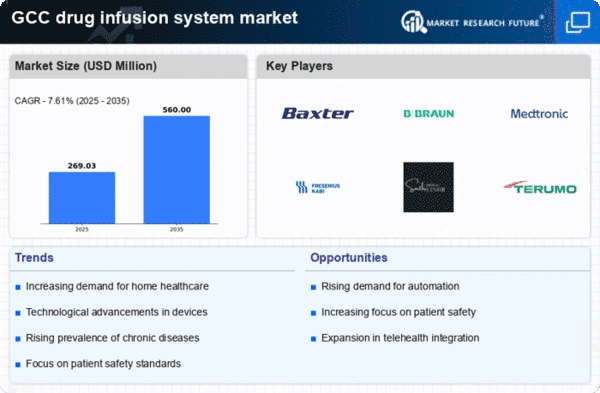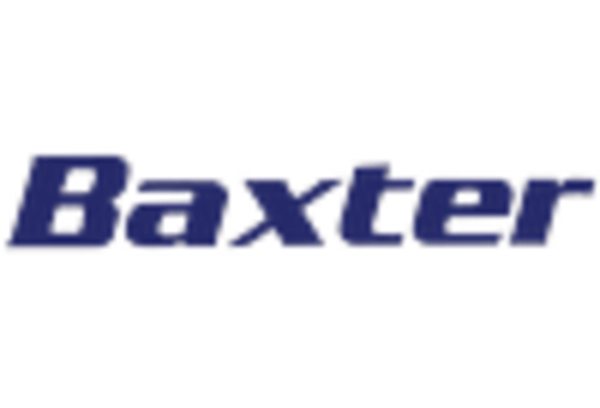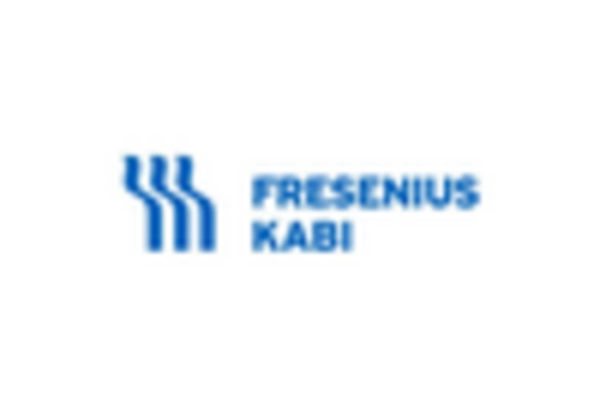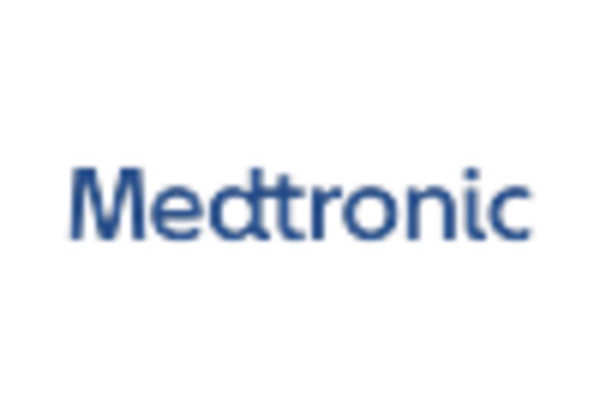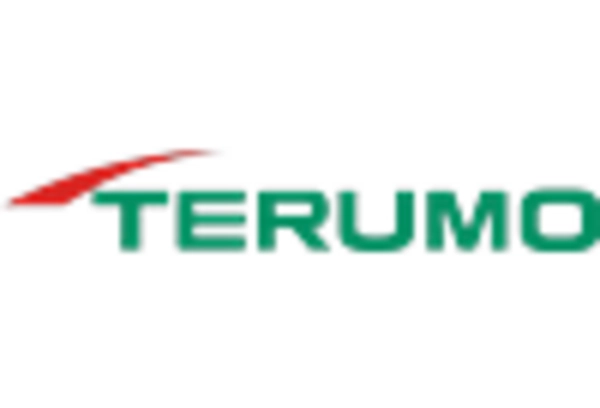Aging Population
The aging population in the GCC region is a crucial factor influencing the drug infusion-system market. As life expectancy increases, the demand for healthcare services, including drug infusion therapies, is expected to rise. Older adults often require complex medication regimens, making drug infusion systems essential for managing their treatment effectively. It is projected that by 2030, the percentage of individuals aged 60 and above in the GCC will reach 15%, further amplifying the need for reliable drug delivery systems. Healthcare providers are likely to invest in advanced drug infusion technologies to cater to this demographic, ensuring that patients receive the appropriate care. Consequently, the drug infusion-system market is anticipated to expand as healthcare systems adapt to the needs of an aging population, focusing on enhancing quality of life and treatment efficacy.
Focus on Patient Safety
Patient safety is becoming a paramount concern in the GCC healthcare landscape, significantly impacting the drug infusion-system market. Healthcare providers are increasingly prioritizing the implementation of systems that minimize medication errors and enhance patient outcomes. The adoption of drug infusion systems equipped with safety features, such as programmable dosing and alarm systems, is on the rise. This focus on safety is driven by regulatory bodies and healthcare organizations advocating for improved standards in medication administration. As a result, the drug infusion-system market is likely to witness growth as hospitals and clinics invest in technologies that ensure safe and effective drug delivery. The emphasis on patient safety not only enhances treatment efficacy but also fosters trust in healthcare systems, further driving the demand for advanced drug infusion solutions.
Increase in Chronic Diseases
The prevalence of chronic diseases in the GCC region is a significant driver for the drug infusion-system market. Conditions such as diabetes, cardiovascular diseases, and cancer are on the rise, necessitating effective management strategies. Reports indicate that around 30% of the adult population in GCC countries suffers from diabetes, which requires regular medication and monitoring. This growing patient base creates a substantial demand for drug infusion systems that can deliver precise dosages and enhance treatment adherence. As healthcare providers seek to improve patient outcomes, the adoption of advanced drug infusion technologies becomes essential. Consequently, the drug infusion-system market is poised for growth as healthcare systems adapt to the increasing burden of chronic diseases and the need for efficient treatment modalities.
Rising Healthcare Expenditure
The drug infusion-system market is experiencing growth due to the increasing healthcare expenditure in the GCC region. Governments are allocating larger budgets to healthcare, which is expected to reach approximately $100 billion by 2025. This financial commitment facilitates the acquisition of advanced medical technologies, including drug infusion systems. Enhanced funding allows healthcare facilities to upgrade their equipment, thereby improving patient care and operational efficiency. As a result, the demand for sophisticated drug infusion systems is likely to rise, driven by the need for better treatment options and improved patient outcomes. Furthermore, the growing focus on healthcare infrastructure development in GCC countries supports the expansion of the drug infusion-system market, as hospitals and clinics seek to implement state-of-the-art solutions to meet the needs of their populations.
Technological Integration in Healthcare
The integration of advanced technologies in healthcare is transforming the drug infusion-system market. Innovations such as smart infusion pumps, which offer features like dose error reduction systems and wireless connectivity, are becoming increasingly prevalent. These technologies enhance the safety and efficiency of drug delivery, addressing critical issues in patient care. The GCC region is witnessing a shift towards digital health solutions, with investments in telemedicine and remote monitoring systems. This trend is likely to drive the demand for sophisticated drug infusion systems that can seamlessly integrate with electronic health records and other digital platforms. As healthcare providers prioritize patient safety and operational efficiency, the drug infusion-system market is expected to benefit from this technological evolution, leading to improved treatment outcomes and patient satisfaction.


